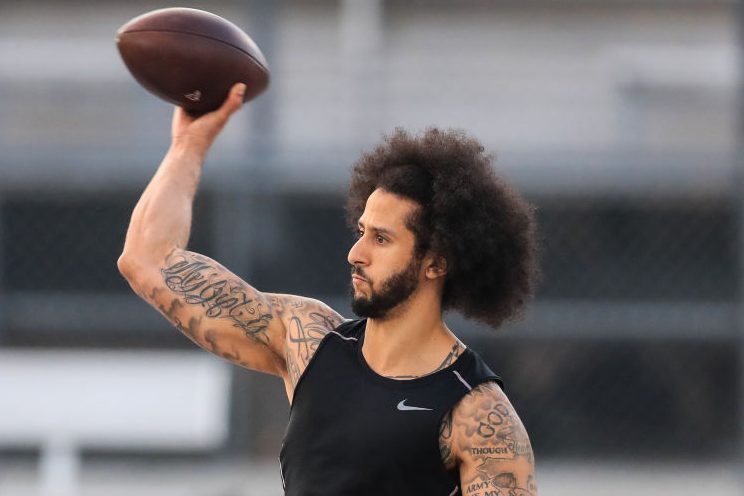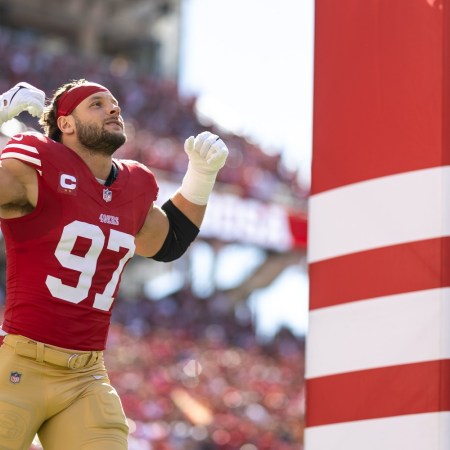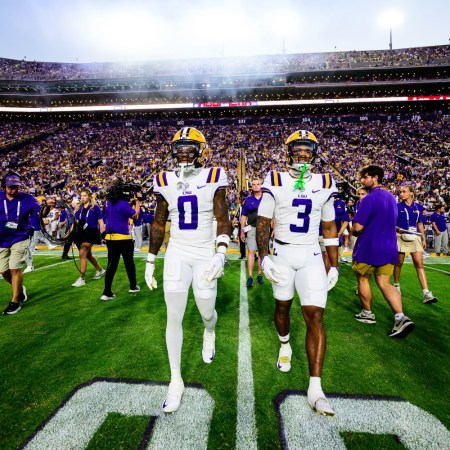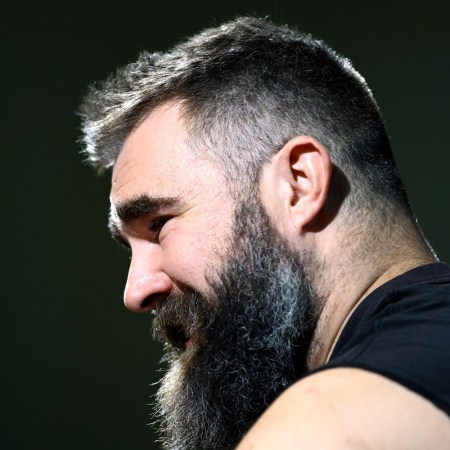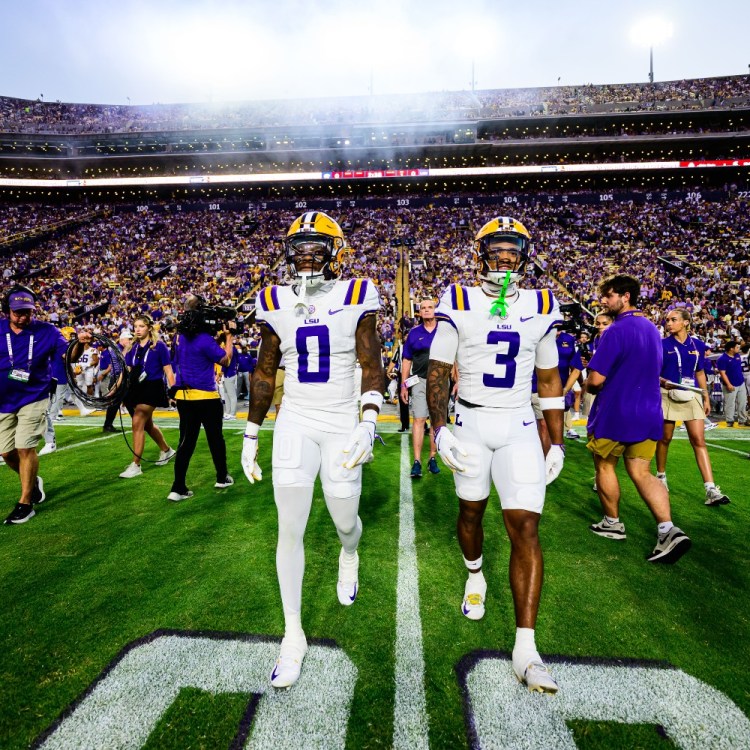This week brought with it news that quarterback Colin Kaepernick had reached an agreement with the NFL, and that he’d be taking part in a workout that would be open to representatives from the league’s teams. It seemed like a thaw in a contentious relationship between Kaepernick and the league he’s had a contentious relationship with — to put it mildly — since his decision to kneel during the National Anthem.
The workout was set for Saturday in Georgia — though it didn’t quite take place according to the NFL’s plans. The event was originally set to take place at the Falcons’ training facility, but it ended up being moved to Charles R. Drew High School in Riverdale. According to ESPN’s report on the event, representatives from 8 NFL teams were present.
Kaepernick threw passes for 40 minutes. Vaughn McClure at ESPN reports that his form looked good. “The 32-year-old showed that he still has an arm by completing deep balls to former NFL receivers Brice Butler, Bruce Ellington, Jordan Veasy and Ari Wertz,” he wrote.
Kapernick’s workout drew a crowd of approximately 250. While there, he also criticized the league, saying, “We have nothing to hide. So we’re waiting for the 32 owners, 32 teams, Roger Goodell, all of them stop running. Stop running from the truth. Stop running from the people.”
The question remains: why did the workout get moved? At Pro Football Talk, Mike Florio has some insight into that. The NFL asked Kaepernick to sign a waiver before the training session. As Florio puts it, this might have become a sticking point:
The three-page, 13-paragraph documents contains several specific provisions that could be relevant to the question of whether the NFL was trying to parlay the waiver into a release of any claims for collusion/retaliation that Kaepernick could make as a result of his ongoing unemployment by the league since settling his first collusion case in February.
Florio’s analysis also offers the possibility that much of the waiver’s language is simply generic legal wording — the kind of thing that might show up in any legal document prepared by a massive entity such as the NFL. But Florio also notes that “there’s enough language in the waiver to give a prudent, careful lawyer legitimate concern that an aggressive litigator would later argue that signing the document defeats all potential employment claims that Kaepernick could have made.”
Whether anything comes from this very public workout regarding his future in professional football remains to be seen. But it’s not at all surprising that Kaepernick would be wary in his dealings with the NFL, given their history over the last few years.
Subscribe here for our free daily newsletter.
Whether you’re looking to get into shape, or just get out of a funk, The Charge has got you covered. Sign up for our new wellness newsletter today.
